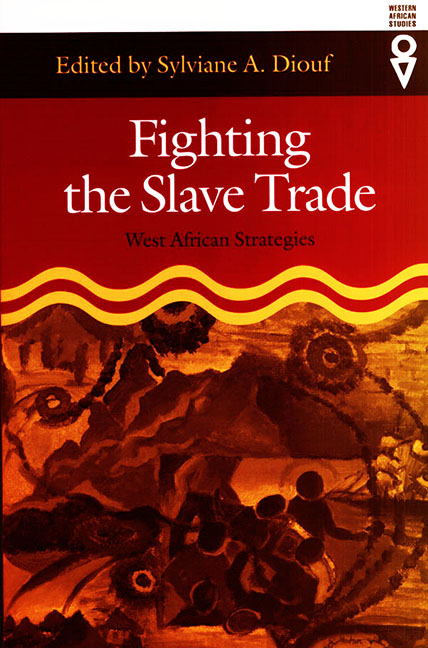Book contents
- Frontmatter
- Contents
- Preface
- Introduction
- PART 1 DEFENSIVE STRATEGIES
- PART 2 PROTECTIVE STRATEGIES
- 6 The Last Resort: Redeeming Family and Friends
- 7 Anglo-Efik Relations and Protection against Illegal Enslavement at Old Calabar, 1740–1807
- PART 3 OFFENSIVE STRATEGIES
- Epilogue: Memory as Resistance: Identity and the Contested History of Slavery in Southeastern Nigeria, an Oral History Project
- Contributors
- Index
6 - The Last Resort: Redeeming Family and Friends
from PART 2 - PROTECTIVE STRATEGIES
Published online by Cambridge University Press: 30 August 2017
- Frontmatter
- Contents
- Preface
- Introduction
- PART 1 DEFENSIVE STRATEGIES
- PART 2 PROTECTIVE STRATEGIES
- 6 The Last Resort: Redeeming Family and Friends
- 7 Anglo-Efik Relations and Protection against Illegal Enslavement at Old Calabar, 1740–1807
- PART 3 OFFENSIVE STRATEGIES
- Epilogue: Memory as Resistance: Identity and the Contested History of Slavery in Southeastern Nigeria, an Oral History Project
- Contributors
- Index
Summary
IN JUNE 1829 A CARAVAN LEFT TIMBO in Futa Jallon and headed south toward Monrovia, Liberia, carrying $6,000 to $7,000 in gold to be remitted to Ibrahima abd al-Rahman Barry, a son of the late almamy Ibrahima Sori Mawdo. The aging man had returned to Liberia two months earlier, after forty years of bondage in Mississippi. Upon arrival, he had sent word to his wealthy and influential family to help him redeem his five children and eight grandchildren still living on a cotton plantation near Natchez. One hundred and fifty miles from Monrovia, the caravan learned of Ibrahima's death. The men turned back, and, as a result, most of his descendants spent the rest of their life in servitude (Russwurm 1830, 60; Alford 1977, 184).
An African family in one country and their formerly enslaved kin in another had tried and failed to gain the release of children born in America with gold gathered through the labor, or perhaps the sale into the Atlantic trade, of domestic slaves in Africa. Ibrahima's story illustrates the contradictions of redemption, a double-edged tactic that saved many Africans from bondage to the detriment, sometimes, of others.
Captive redemption is a well-documented practice, depicted in two main categories of sources. One consists of the autobiographies and biographies of, and interviews with, Africans. They represent a range of experiences: some people had been redeemed before but ultimately failed to be ransomed; others had witnessed the ransoming of captives; still others had attempted to be redeemed. The testimony of men and women who had been the victims of ransoming—as they were exchanged for somebody's freedom—would be of immense interest, but research has not turned up any documentation so far. Anyhow, given the way transactions were conducted, it is probable that many if not most substitutes were not even aware that they were taking someone else's place, and therefore such testimonies may very well not exist.
Westerners’ accounts are another font of information. They extend from the writings of witnesses to the transaction to statements by traders and officials who engaged in the practice. The slave trade's victims, organizers, and opponents offer perspectives on the practice that are very often of a personal nature, the type that is frequently missing in slave trade studies.
- Type
- Chapter
- Information
- Fighting the Slave TradeWest African Strategies, pp. 81 - 100Publisher: Boydell & BrewerPrint publication year: 2004



